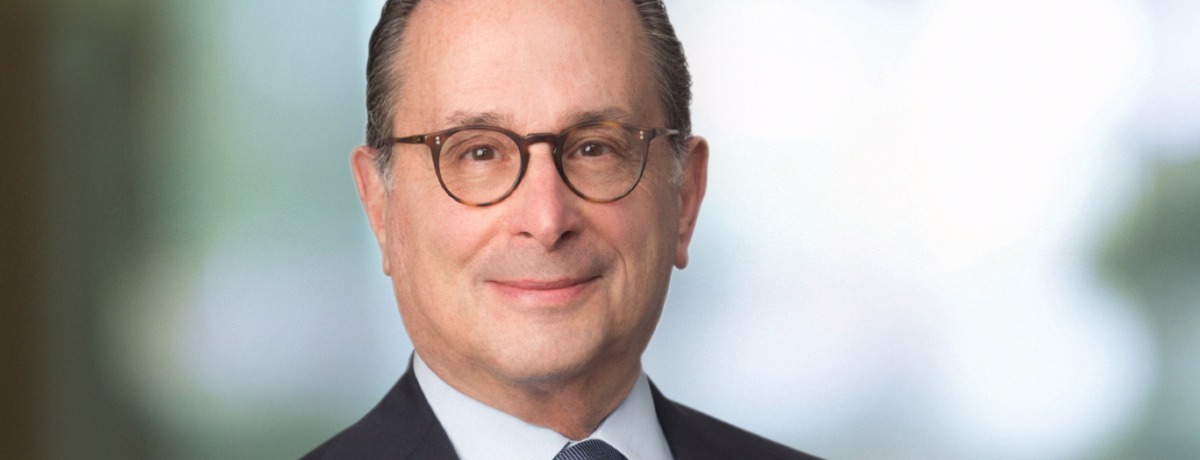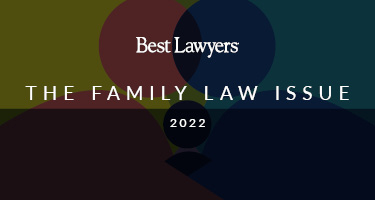A Q&A with Advisory Board member Andrew Smulian at Akerman.
What is your typical day like?
There are three or four components that make up the different activities in my day. One is to deal with firm strategy, which has various aspects. The second is driving growth: growth in geographical terms, growth in practice area terms, furtherance of our client work, client service offerings, client relationships, the kinds of services and products that we’re offering to our clients, and how we can help them even more proficiently than we do and with greater depth to help them out. The third element, I would say, is operational. I also do a fair amount of travel, meeting with clients as well as lawyers and other professionals across our 24 offices. And when I can squeeze out a few minutes, the final component is to consider the forward view, like where the legal profession is headed, where we as a law firm are headed, and to think back to the strategy piece and the execution where the day began.
How have you built a culture of collaborative innovation at Akerman?
This is something that didn’t just get dreamed up on my watch. It is part of our culture, part of our history. We’ve been around for almost 100 years. Going back to the beginning of the firm, I don’t think people called it collaborative innovation at that point, but in effect, that’s what we were doing: helping clients and growing with our many communities. We try to bring together a lot of different strands of our culture that are involved in this process. Certainly, our diversity and inclusion initiative, which is differentiated by our participation in programs like the On-Ramp Fellowship Program for women re-entering the practice of law after an extended hiatus; the Women in Law hank-a-thon, dedicated to recruiting and advancing female leaders in law; and the LCLD Fellowship Program, focused on increasing diversity within the profession. We have also participated in various—what I would call—aspects of “entrepreneurial ecosystems” outside of the firm. This includes our participation in a group called Law 2023 where I served with other legal leaders, exploring the many ways in which law firms of the future will need to behave in order to be successful. This participation led to the formation of the Akerman R&D Council, which is a group of firm leaders and clients who explore ways to improve our service offerings and how we interact with clients. Through various unique partnerships, we also built relationships with Miami’s startup community and established a presence inside one of the city’s innovation centers.
So it manifests itself in all those ways and still more. In our new office buildouts, we’re very focused on collaborative use of space where people can come together as they work to solve our clients’ most pressing problems. We have design-thinking workshops, innovation tournaments, always with a client-centered point of view. The effort has led to the creation of the Akerman Data Law Center and a first-of-its-kind law firm partnership with the National Court Appointed Special Advocates Association for foster youth, which both earned the firm distinction in the Financial Times among the 20 most innovative law firms in North America.
What can you tell me more about that and its objective? Does it have to do with foster children?
We became the first law firm to partner with the National CASA organization and its local guardian ad litem (GAL) programs in 2014 when we first launched our Give Back campaign. This relationship is really a dynamic, influential, and innovative program that unites the power of more than 1,300 lawyers and staff firm-wide in a number of ways to improve the lives of abused and neglected children. Our people have dedicated countless hours to pro bono legal service, child advocacy, community volunteerism, and extensive fundraising efforts. Their contributions to the local CASA/GAL programs in Akerman's markets have helped more than 16,000 foster youth and trained nearly 7,700 volunteers. As part of our commitment to take on a substantial role in the lives of foster youth, we also made a $1 million pledge to National CASA. A portion of the funds goes toward the Akerman Academic Excellence Scholarship to help young adults who have spent time in the foster care system pursue a higher education.
We are doing a lot of advocacy work on behalf of foster youth, incarcerated youth, parents adopting children, and young immigrants seeking refuge in the United States, among others. In Florida, for example, our Legal Center team was involved in a case that really was life-changing with respect to young people being made eligible for resentencing that resulted from a Florida State Supreme Court decision. We’re signaling through all of this, I think, to the legal industry at-large that there is an extensive need for child advocates. That’s quite a gratifying feeling, and it inspires us to continue our work.
With this organization promoting the well-being of foster children, is it after the children are out of the foster system, with college aid, or are there different things?
It’s both. We established the scholarship for college-bound youth that has aged out of the foster care system. Many of our people are working as guardians ad litem, helping children still within the system in all aspects of their lives. Forming this partnership with CASA/GAL at the national and local levels allows us to respond to their needs on all fronts and make a real impact in the areas of education and youth development.
What do you think firms can do to express social responsibility for their communities?
I think that, speaking for ourselves, there are a number of avenues through which we address the critical social issues we face as a country. We have partnerships in the community. As I’ve said before, the volunteerism of our people is not just the firm-wide umbrella of participation with CASA, but is in a number of activities in which our people volunteer. Pro bono not just through the foster care system, but pro bono in all kinds of other activities. We collaborate, of course, with clients with respect to joint pro bono and community service opportunities. So I think we feel a great responsibility to serve as allies and advocates in our communities. I think it’s pretty much part of the fiber of our being, particularly to underserved populations and to help the most vulnerable children, particularly, in our society.
What do you think we, as individual, can or should do?
We have this architecture of our Give Back Days, CASA, and pro bono programs, etc. Mechanisms that clearly work for our firm can work for others as well. I think that individually people at our firm and others have numerous opportunities to generously give their time to volunteer or reach out financially and in other ways that express their own commitments. As lawyers, I strongly believe we have an obligation to make this a priority as individuals and collectively through our organizations.
How has real estate law changed you as an individual, and what lessons have you learned along the way?
Well, I began my career in litigation and early on did a fair amount of real estate litigation, and then moved from the litigation side to the deal side. I have great respect for litigators and the skills required to be an effective advocate. What attracted me to the deal side was that it was the area of the practice that was closest to the business side of things. You get to see a tangible result; you get to see the building that’s built, the whole neighborhood that’s created, or the entire housing project that occupies what used to be vacant land. So you see this tangible thing you can drive by and say, “I had some role in creating this,” and you can point to an edifice or a structure or a complex. It provides some gratification and validation as well.
I don’t think I was conscious of this over the course of my career as a real estate lawyer, being close to the deal side and seeing these tangible results. Anticipating how I spend my days now, within the context of law firm management, and seeing the firm grow and expand provides gratification in its own terms.
Are there any upcoming Supreme Court or District Court decisions that you are interested in?
At the Supreme Court level, there are a couple of Supreme Court cases that I would point to in the societal realm. One involves Trinity Lutheran Church of Columbia. The issue there is whether the exclusion of churches, from what otherwise would be a neutral secular aid program, violates the free exercise and equal protection clauses. From a societal perspective, I find it to be an interesting issue. As is the issue of whether it is possible for a naturalized American citizen to be stripped of citizenship in a criminal proceeding based on an immaterial false statement. That’s an issue that arose in the Sixth Circuit, which is in conflict with other U.S. Courts of Appeals and other circuits. I would identify those two pending cases awaiting decisions as interesting at a national social implications level.
With respect to business issues, there’s a case called Hansen v. Santander Consumer USA. The issue is whether a company that regularly attempts to collect debts after they’ve been bought and after they’ve fallen into default, is a debt collector subject to the Fair Debt Collection Practices Act. That is an issue that I find interesting and that is important for many of the clients our lawyers represent.
What do you think have been some of your keys to success? What strategies have you implemented to become successful?
A lawyer has to be 90–95 percent certain of things before a lawyer is satisfied. It’s very important for the lawyer’s mind to have everything nailed down as tight as can be. Operating on the business side of things, sometimes you don’t have the luxury of certainty by virtue of time constraints, or otherwise, to make a decision about whether you’re going to go forward on a certain project, invest the firm’s resources, or your own time. So I think you have to learn to operate, which I think I successfully have, with a bit more of an ambit of making a decision. If it’s successful, that’s great—you reinforce. If it’s not successful, you’ve got to cut your losses, pull back, and move on to something else. I think a willingness to try new things is one of the keys to success, but I think you can’t be too precipitous either. “Ready, aim, ready, aim, ready aim, and then I’ll pull the trigger.” You’ve got to consider various perspectives, look at it, then look at it again. At a certain point, you can’t lose the opportunity so you have to make a decision. Finding your own personal comfort level on how those factors balance out and where the line is when you can say, “Yes, let’s go ahead.” That is something you discover as you mature and as you grow into a job like this. I think if you get comfortable with it—comfortable in your own skin—that leads to successful outcomes. I think you have to provide direction, and I think I’ve helped people move where we’re trying to go as a firm. I think you’ve got to express to people what our purpose is and why they want to work here, what we have to offer, how we make Akerman a great place to work, a great place for our clients, and a great group of lawyers for our clients to work with. So I think when you can spend your time in helping to move directionally along those lines, I think those are keys to success as well.
Access top-rated lawyers through the Best Lawyers Find a Lawyer tool to help with your legal matters.




















